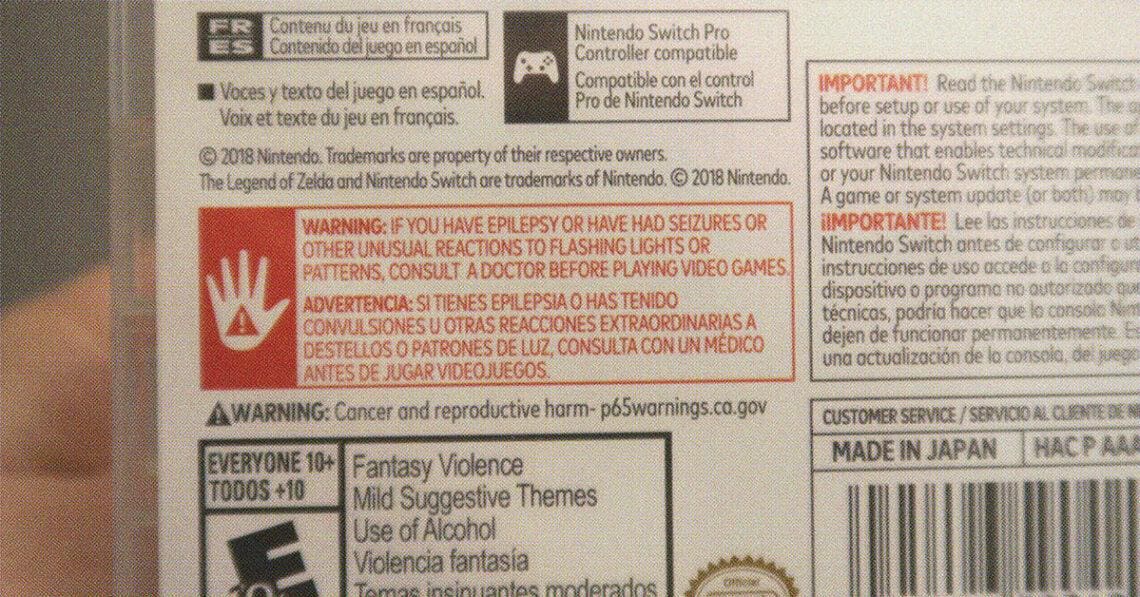California allows companies to place so-called short-form warnings on certain products to satisfy Proposition 65’s requirement to warn consumers about potentially harmful chemicals. But a proposed change threatens to render those short-form warnings all but useless. Sedina L. Banks and Sherry Jackman of Greenberg Glusker explore the background and look at what might be on the horizon.
In October 2023, the Office of Environmental Health Hazard Assessment (OEHHA), the lead California regulatory agency tasked with implementing California’s Proposition 65, proposed significant changes to the Proposition 65 warning requirements that may impact businesses’ Prop 65 compliance strategy. In particular, OEHHA is once again considering changes to the “short-form warnings,” as well as other provisions, on which the regulated community heavily relies. Accordingly, manufacturers and suppliers across many industries are on high alert.
Background
Proposition 65, officially referred to as the Safe Drinking Water and Toxic Enforcement Act of 1986, requires businesses with 10 or more employees to provide a “clear and reasonable” warning before exposing individuals in California to any listed chemical that may cause cancer or reproductive harm.
This list includes almost 1,000 chemicals ranging from well-known chemicals like lead and mercury to chemicals that are obscure and difficult to pronounce. The listed chemicals include a range of naturally occurring and human-made chemicals that are found in products people use every day. This list continues to grow as new chemicals are periodically added because they are determined to cause cancer, birth defects or reproductive harm, or both.
Regulations that went into effect in 2018 provided revised “safe harbor” provisions, which set forth specific warning language and methods of transmission that businesses can use to ensure compliance with the Prop 65 warning requirements. For the first time since its inception, businesses were required to list in the warning at least one specific chemical associated with each “endpoint” implicated (cancer and/or reproductive harm). For on-product labels, however, the regulations allowed businesses to use a “short-form” warning that did not identify any chemicals but instead more generically warned consumers. Short-form warnings were allowed irrespective of product size. For this reason, many businesses relied on the short-form warning as a large part of their Proposition 65 compliance strategy.
Poor Oversight Threatens Corporate Sustainability Efforts
2024 climate trends include board’s role, AI effects and disclosure requirements
Read moreProposed changes
In 2021, OEHHA proposed changes to the short-form warning requirements that would essentially eliminate many of the benefits to businesses by requiring, among other things, listing of at least one Proposition 65 chemical for each endpoint. As can be expected, the regulated community pushed back. In May 2022, OEHHA announced it would allow the rulemaking to lapse. Although OEHHA stated that it was going to propose new rules, OEHHA had not taken any further action until the changes were proposed in 2023.
At that time, OEHHA once again proposed that the short-form warning requirements be amended to require identification of specific chemicals irrespective of packaging/product size to “make the Proposition-65 warning more informative to consumers.” With this rulemaking, OEHHA also (1) clarified the existing safe harbor warning requirements for products sold on the internet and in catalogs, such as specifying that a warning must still be included with the delivered product; (2) amended the warning options for food warnings including clarifying that short-form warnings may be used to provide safe harbor warnings for food products; and (3) provided a new, tailored safe harbor warning for passenger or off-highway motor vehicle parts and recreational marine vessel parts.
OEHHA cited concern that companies have been using the short-form warning even when there is no Proposition 65 chemical in the product as a risk management strategy. Some companies have chosen to apply “just in case” warnings to all products, as actual lab testing of the products would be too costly or burdensome.
According to OEHHA, this practice has resulted in over-warning and has necessitated the proposed changes. Pursuant to the proposed changes, identification of one chemical per endpoint (cancer or reproductive harm) would be required.
Latest developments
In mid-December, OEHHA conducted a quasi-legislative hearing on its proposed changes to short-form warning requirements. Following a short presentation on the proposed amendments, public comment began. As expected, the public comments were overwhelmingly in opposition to the proposed regulatory changes. Opponents of the proposed amendments included key stakeholders, including industry representatives, trade associations and the California Chamber of Commerce.
The chief concern over the proposed regulatory changes is that compliance costs would be significant, particularly for small businesses and those with many products. Single-product lab tests performed to identify chemical composition often cost hundreds of dollars, and single-product exposure assessments may cost thousands, so it’s easy to imagine the costs to assess thousands of unique products.
At the outset of the hearing, OEHHA mentioned that if it adopts the new regulatory changes, companies will have a two-year period to achieve compliance after passage of the amendments. Several commenters thus expressed concerns about insufficient time to implement measures like software upgrades, employee and vendor training, physical repackaging/relabeling and product chemical assessments. Others suggested that the sell-through period should allow use of pre-printed Prop 65 warning labels using the currently compliant warning language to minimize waste.
Given the size of California’s economy and an inability on the part of manufacturers to determine precisely where products may end up, in all likelihood, manufacturers will continue to apply warnings to products shipped nationwide and even internationally. For that reason, as Proposition 65 is a California law, commenters expressed concern that out-of-state consumers may be confused by an unfamiliar regulatory scheme.
Opponents of the changes also highlighted the arbitrary identification of chemicals as a potential issue following the proposed rule change. Because Proposition 65 permits identification of any one chemical — without regard to relative concentration, quantity or toxicity — consumers may be misled in assuming that a listed chemical is the primary “offending” chemical.
There is also the question of whether these changes would diminish product availability in California. Given the factors raised above — excessive compliance costs, an insufficient compliance period, consumer confusion and arbitrariness — businesses, particularly small ones, may simply opt out of the California market. California’s existing reputation for a stringent regulatory landscape might reach a tipping point for some companies, with this potential change being the final burden they cannot bear.
The primary comments lodged in favor of the proposed regulatory changes were made by Center for Environmental Health (CEH), a prolific Proposition 65 enforcer that has issued more than 1,000 notices of violation over the years. The new law, if passed, will certainly create plenty of litigation exposure for companies unfamiliar with the requirements.
Looking ahead
OEHHA is expected to provide written responses to all written and oral comments after the conclusion of the public comment period, which ended Jan. 3. Businesses that currently rely on short-form warnings should be aware of the proposed changes and monitor developments to ensure sufficient time to revise warnings should OEHHA adopt the proposals. All businesses in the supply chain, including manufacturers, packagers, distributors and retailers, should be aware of these potential changes because Proposition 65 enforcement actions can be brought against any of these parties.
Recently, there has been an increase in Proposition 65 enforcement actions against allegedly noncompliant businesses. We can expect an even greater increase in enforcement actions targeting unwary businesses if OEHHA adopts its proposed regulatory changes. Noncompliance penalties can be steep — up to $2,500 per day for each violation (with a “violation” typically considered a California sale or “exposure”). Businesses also face having to pay plaintiffs’ attorneys fees if an enforcement action is brought, which oftentimes can dwarf the civil penalty amount.
Suppliers, manufacturers and retail sellers should consider investing in a structured Proposition 65 compliance plan, as a violation can be both costly and difficult to resolve. Such a plan can include written provisions that contractually shift the burden of Proposition 65 compliance to others in the supply chain. Ultimately, prudent businesses should be forward-thinking in their approach. Trying to assess compliance in the middle of a lawsuit is both costly and stressful.




 Sedina L. Banks
Sedina L. Banks Sherry Jackman
Sherry Jackman






